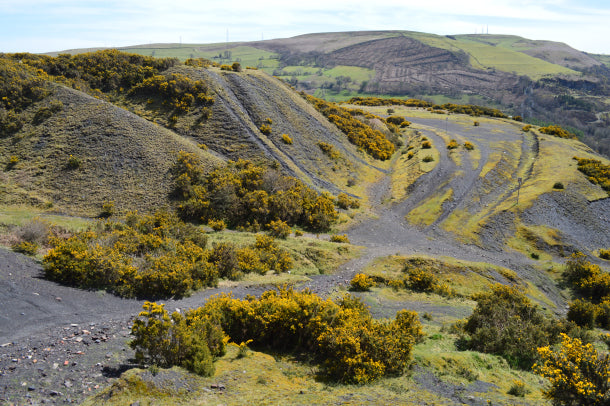Industrial Moonscape v. Green and Pleasant Land
Share
Last week entomologist Liam Olds published a fascinating study on invertebrates living on colliery spoil heaps in the south Wales valleys. If you assumed this might have been a tough assignment, then think again. It turns out old slag heaps are insect nirvana.

Colliery Spoil Heaps (photo Liam Olds)
Liam found a whopping 901 invertebrate species on the 15 sites he investigated, of which over 20% are rare. Lots of exciting solitary bees, which caught my eye in particular.
This won't come as a surprise to ecologists or botanists. Low nutrient soils are great for wildflowers, and the slower they grow the more diversity you get. Liam's spoil heaps would have started off life looking like lunar landscapes, made up of barren crushed rock. Even as they develop, friable soils mean bare patches, colonised by lichen and mosses.
This diversity is further enhanced by the mixture of waste in the spoil heaps. It means their soils can be a mix of acidic and calcareous, which support different types of plants. Diverse native flora means diverse fauna.

While Liam says they now need managing, it's also clear that biodiversity in these spoil heaps has benefited massively from lack of interventions in the past. This is, of course, in sharp contrast to a lot of farmland.
We still seem to think that many farm landscapes - particularly involving grass - are automatically good for wildlife. Some are, of course, and hats off to the farmers who work so hard - and often thanklessly - to achieve that. They're not by definition, however. Green is not necessarily good. Farms are often terrible for wildlife. They are, or course, principally food production units, usually run by people who have to make money.
It might be counter-intuitive, but sometimes seemingly unpromising brown field sites can offer much, much more. They should be protected.

